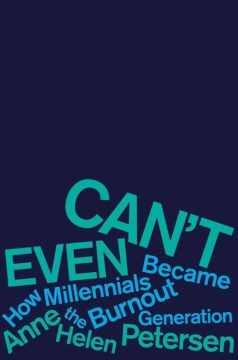Rithika Ramamurthy in the Los Angeles Review of Books:
 In May of this year, The Washington Post published an article damningly titled “Millennials are the Unluckiest Generation in U.S. History.” The piece seemed to tell a truth that our cohort knows all too well: that the COVID-19 pandemic has brought not just an economic recession, but a regression. There were as many jobs in the spring of 2020 as there were in the fall of 1999. For those of us born between the years of 1981 and 1996, it is as if the post-crisis “growth” of the past 10 years never even happened.
In May of this year, The Washington Post published an article damningly titled “Millennials are the Unluckiest Generation in U.S. History.” The piece seemed to tell a truth that our cohort knows all too well: that the COVID-19 pandemic has brought not just an economic recession, but a regression. There were as many jobs in the spring of 2020 as there were in the fall of 1999. For those of us born between the years of 1981 and 1996, it is as if the post-crisis “growth” of the past 10 years never even happened.
In Can’t Even: How Millennials Became the Burnout Generation, Anne Helen Petersen explores the psychic dimensions of existing within this economic depression. According to Petersen, the main difference between millennials and the rest of the precariat is that we once had such great expectations. Molded in the mythos of meritocracy, our generation was raised to believe that we could beat bad circumstances and secure personal stability — if we simply worked hard enough. This happy ending has not materialized for most of us, and there has been extensive emotional fallout.
More here.
